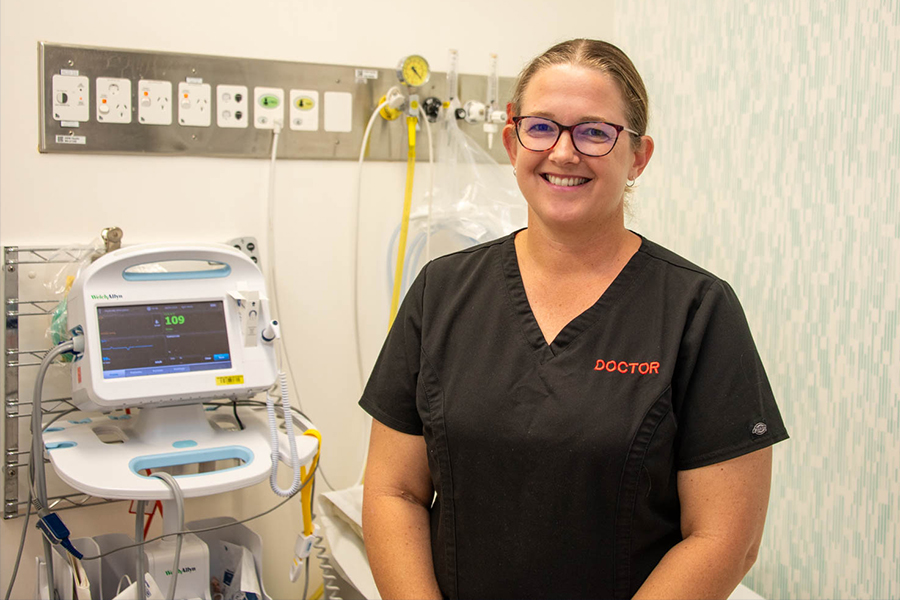
Coffs Harbour Clinical Network Senior Medical Officer (Critical Care and Emergency) Dr Karly Field is excited about the opportunity to improve healthcare for youngsters with bronchiolitis.
Coffs among 30 hospitals chosen for exciting bronchiolitis project
May 10, 2024Coffs Harbour Health Campus is one of 30 hospitals in Australia that will take part in a nationwide effort to improve healthcare for children with bronchiolitis.
The hospital’s participation in the Regional and Rural Translation in Bronchiolitis project is the result of a $3.8 million Rapid Applied Research Translation (RART) grant awarded to PREDICT (Paediatric Research in Emergency Departments International Collaborative).
In applying for the grant, PREDICT sought input from Health professionals throughout Australia, including Coffs Harbour Clinical Network Senior Medical Officers (Critical Care and Emergency) Dr Karly Field and Dr Ceara McCool.
The project, which will be led by Professor Franz Babl at the Murdoch Children’s Research Institute, aims to ensure children affected by this serious illness receive the best care, no matter where they live.
It will bring together doctors and researchers from different areas, such as nursing, paediatrics, and emergency medicine who are focused on bronchiolitis, a lung disease caused by viral infections, and the most common reason for hospital admissions in infants.
The project aims to create a system where hospitals can share ideas and improve care for bronchiolitis. Dr Field and her team will work with participating hospitals to make this happen. They’ll also help develop an online platform to help hospitals improve their care methods.
Over the next five years, the team plans to:
- Create an online platform to help regional hospitals improve care for bronchiolitis, using the latest research. They’ll also give hospitals feedback on how they’re doing.
- Compare different ways of helping hospitals improve their care for bronchiolitis and see which works best.
- Develop a plan to help regional hospitals across Australia improve their care for bronchiolitis. They’ll also train people to keep improving healthcare in their communities.

